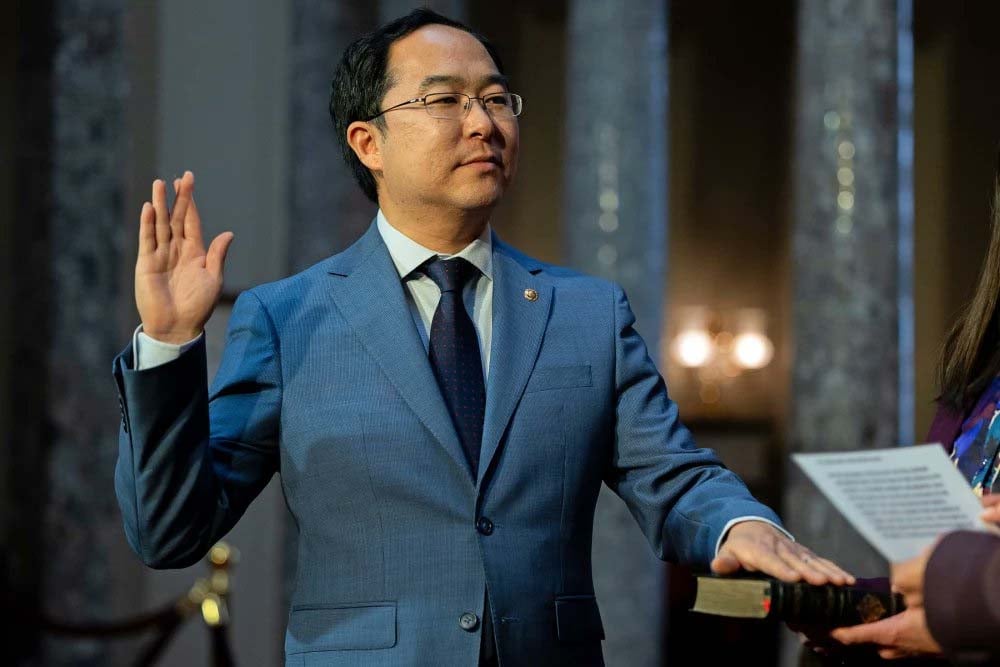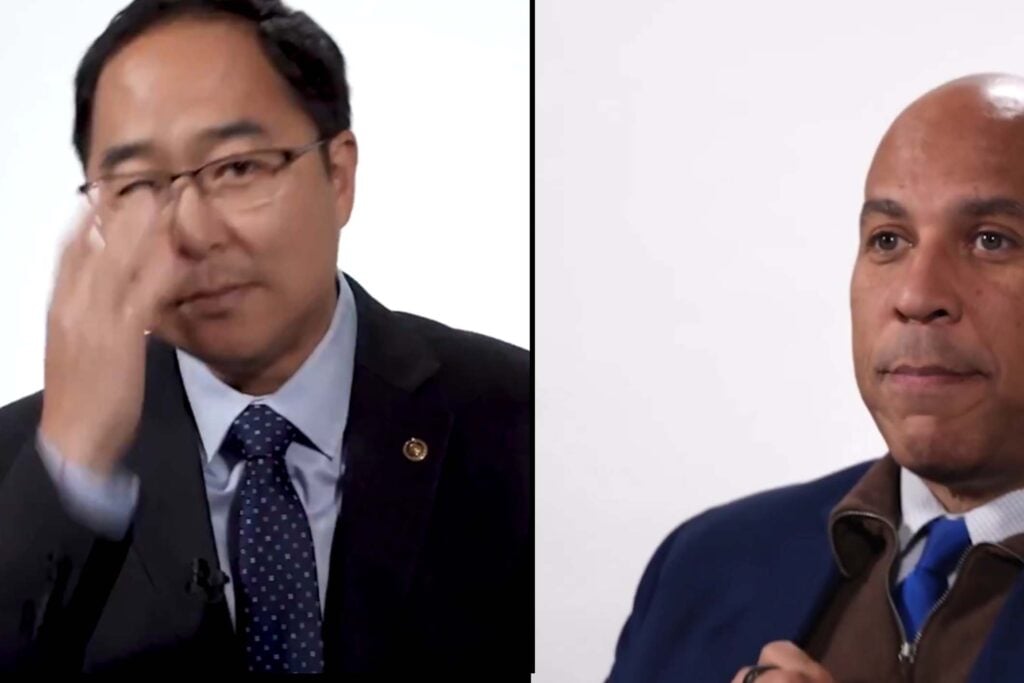Shadows in the Garden State: What Are New Jersey Democrats Afraid Alina Habba Will Uncover?
In the swirling political theater of New Jersey—a state long synonymous with backroom deals, indicted officials, and a revolving door of corruption scandals—Alina Habba’s tenure as acting U.S. Attorney has ignited a firestorm.
Let’s face it. New Jersey Democrats fear law and order as much as they fear being held accountable to a higher legal authority.
Appointed by President Donald Trump in March 2025, Habba, a fierce Trump loyalist with no prior prosecutorial experience, has vowed to root out political malfeasance.

Yet, her efforts have been met with fierce resistance from the state’s Democratic establishment, including Governor Phil Murphy and Senators Andy Kim and Cory Booker.
As Habba’s nomination stalls in the Senate and legal battles rage over her authority, one question looms large: Are they blocking her because they’re terrified of what she might dig up?Habba’s appointment was unconventional from the start. Trump tapped her as interim U.S. Attorney in March, effective immediately after nominating the previous acting attorney for an ambassadorship. Sworn in days later in the Oval Office, she quickly signaled her intent to challenge the status quo. In interviews, Habba expressed ambitions to “turn New Jersey red” and announced investigations into Democratic Governor Phil Murphy and Attorney General Matthew Platkin over the state’s policies limiting cooperation with federal immigration enforcement.
Her office subpoenaed Murphy following his quip about potentially housing a migrant above his garage, framing it as potential interference. Critics decried this as partisan overreach, but supporters see it as a necessary probe into sanctuary policies that could enable corruption or abuse.

The real flashpoint came in May 2025, when Habba’s prosecutors charged Newark Mayor Ras Baraka and freshman Congresswoman LaMonica McIver—both Democrats—with offenses stemming from a clash at a migrant detention center in Newark. Baraka faced trespassing charges that were swiftly dropped, prompting a federal judge to criticize the “hasty arrest” as a potential “misstep.”
McIver, however, was indicted for allegedly assaulting federal immigration agents during the incident, with video evidence showing her physical intervention as Baraka was arrested. McIver pleaded not guilty, and her trial is set for November 2025, but the case has drawn accusations of political retaliation from Democrats, including House Minority Leader Hakeem Jeffries, who pressured judges to oust Habba.
This indictment of a sitting congresswoman is rare outside fraud or corruption cases, but it underscores Habba’s aggressive stance. Baraka, now suing Habba for malicious prosecution, is a progressive mayor eyeing a gubernatorial run—adding fuel to claims that Habba is targeting political threats.
Yet, her defenders argue these actions expose deeper issues in a state where immigration protests and oversight visits can escalate into violence, potentially shielding corrupt networks.New Jersey’s history of political corruption provides ample context for why Democrats might fear a prosecutor like Habba. The state has earned its reputation as a hotbed of scandals: From former Governor Jim McGreevey’s 2004 resignation amid graft allegations to Chris Christie’s tenure as U.S. Attorney, where he built his career prosecuting Democrats (often accused of partisanship himself). More recently, Senator Bob Menendez’s 2024 conviction on bribery and conspiracy charges—after gold bars and cash were found in his home—forced his resignation, paving the way for Andy Kim’s election.
Menendez’s predecessor, Robert Torricelli, withdrew from reelection in 2002 amid ethics probes.
Even Murphy’s administration has faced scrutiny, with allies like George Norcross indicted in 2024 for racketeering. As one observer noted, corruption in New Jersey is almost a “rite of passage,” with over 230 officials convicted between 2001 and 2011 alone.
Senators Booker and Kim, both Democrats, have been vocal in opposing Habba’s confirmation, invoking the “blue slip” tradition to block her nomination. Booker has labeled her a “partisan warrior,” while Kim echoed concerns over her politicization of the office. Governor Murphy, whose policies are under Habba’s microscope, has remained neutral on her appointment but criticized the Trump administration’s maneuvers.
Their resistance culminated in a judicial showdown: When Habba’s 120-day interim term expired in July 2025, a panel of mostly Democratic-appointed federal judges declined to extend it, appointing her deputy, Desiree Leigh Grace, instead. Attorney General Pam Bondi fired Grace hours later, calling the judges “rogue” and withdrawing Habba’s nomination to appoint her as First Assistant, allowing her to continue as acting U.S. Attorney.
This end-run around Senate confirmation has sparked chaos, halting court proceedings and prompting challenges to Habba’s authority. Defendants in cases have moved to dismiss charges, arguing her appointment is unconstitutional. A federal judge is set to rule on August 20, 2025, potentially escalating the constitutional crisis.
Detractors, including bipartisan ethics experts, accuse Habba of Hatch Act violations for promoting GOP candidates while in office. Liberal outlets portray her as a Trump sycophant weaponizing justice, while conservative voices hail her as a swamp-drainer exposing Democratic hypocrisy.
Habba has also garnered support from law enforcement groups, who praise her fentanyl busts and anti-trafficking efforts.The truth likely lies in the middle: Habba’s inexperience and ties to Trump make her a lightning rod, but New Jersey’s entrenched corruption—disproportionately involving Democrats in recent high-profile cases—suggests there’s plenty to uncover. If Murphy, Booker, and Kim are truly committed to transparency, why fight so hard against a prosecutor targeting the very rot that has plagued their party?
Perhaps they’re not afraid of Habba’s partisanship, but of the skeletons she might exhume. As the legal wrangling continues, one thing is clear: In the Garden State, the status quo is under siege, and the Democrats’ desperation to maintain it speaks volumes.
